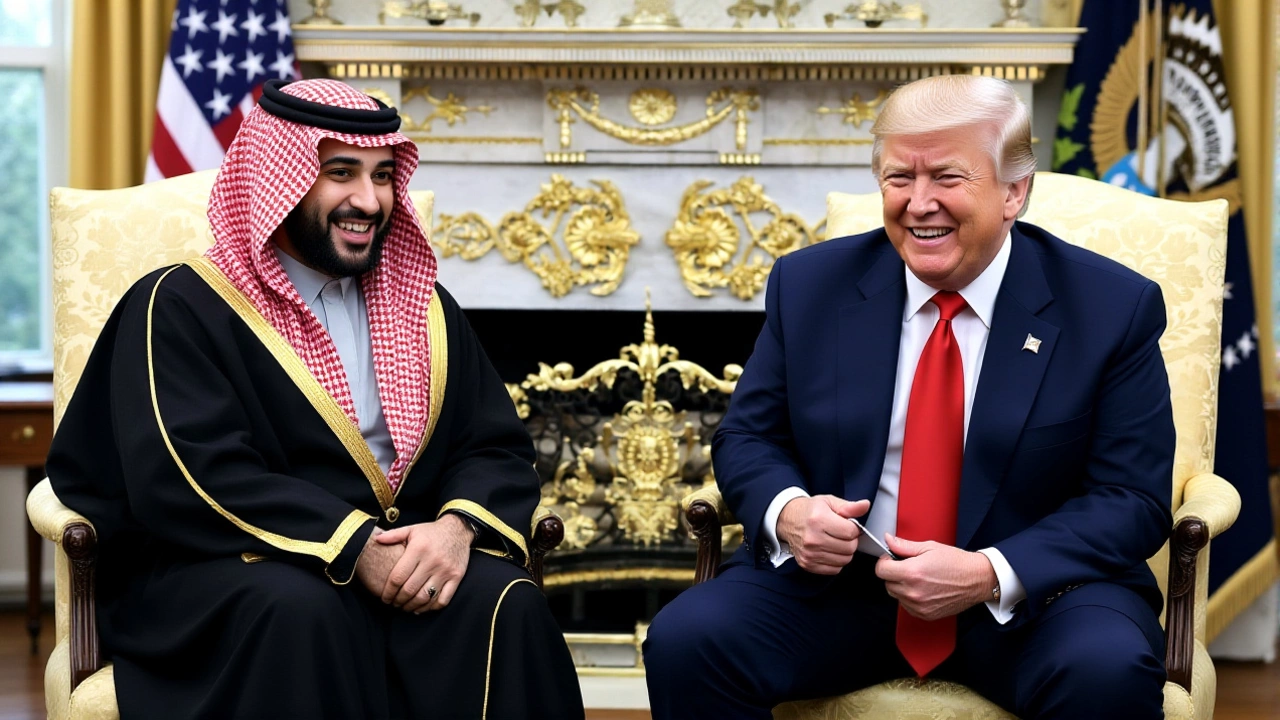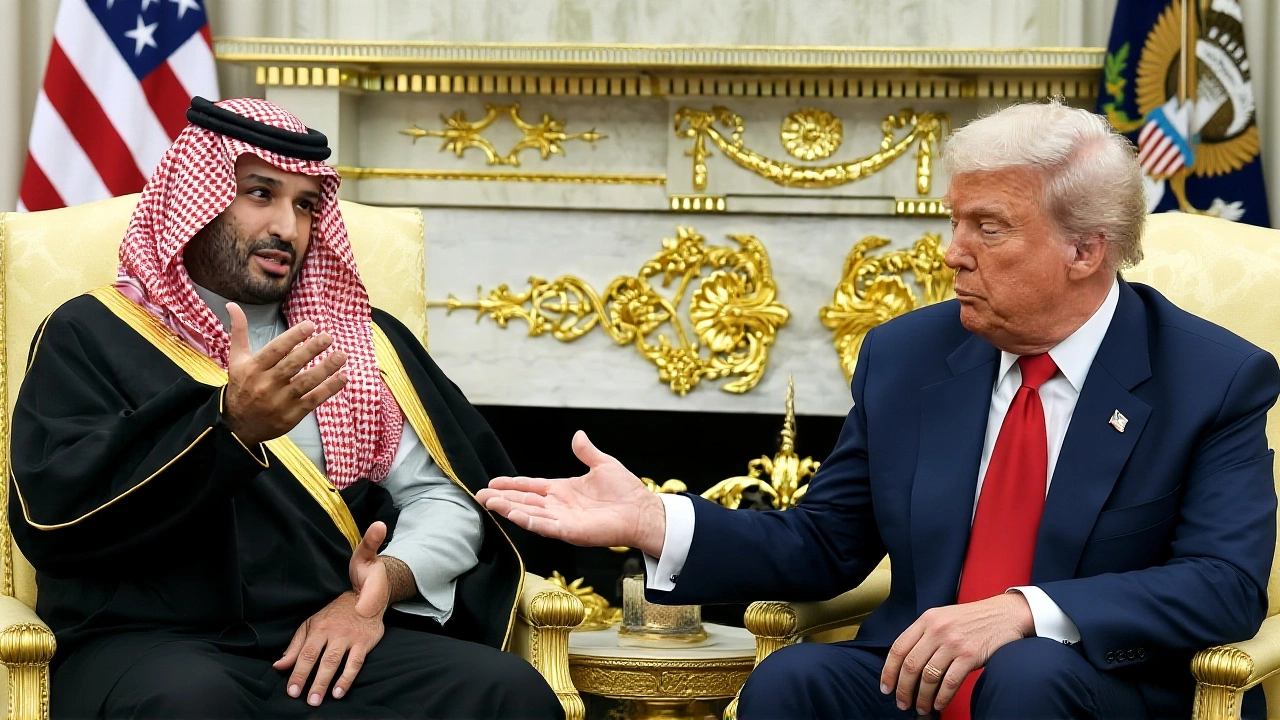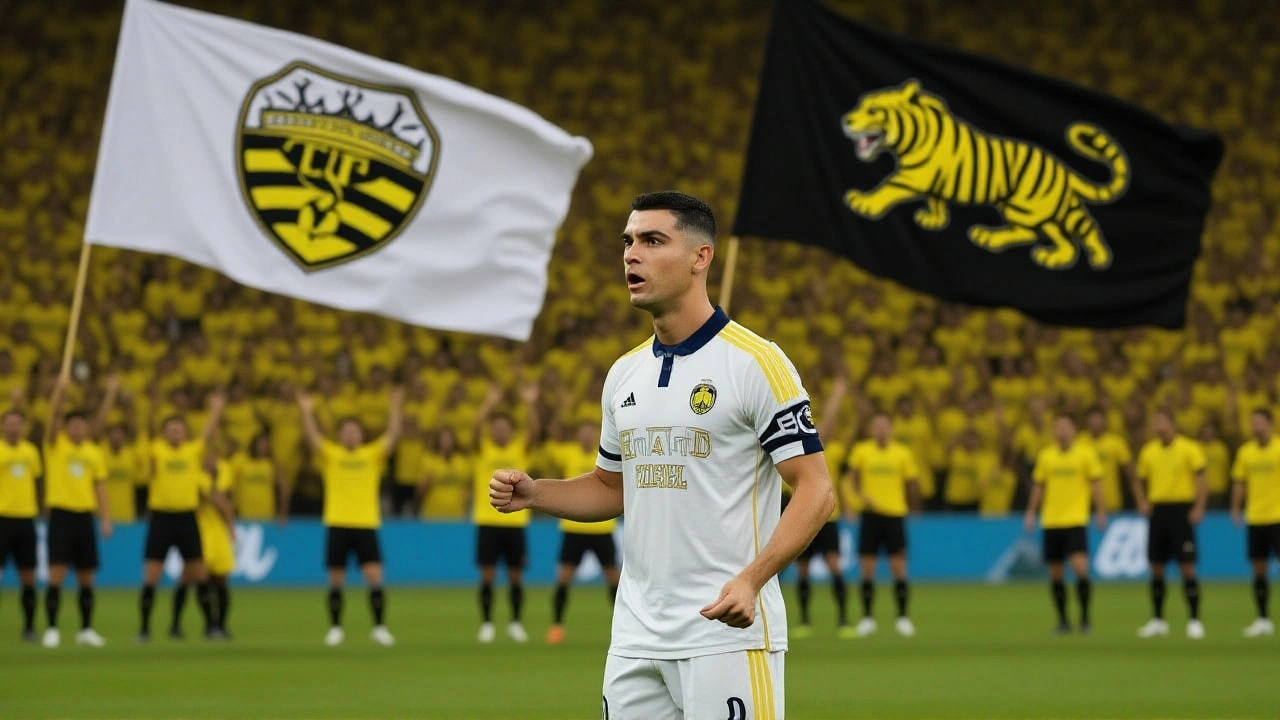When Cristiano Ronaldo walked into the candlelit East Room of the White House on November 18, 2025, he wasn’t just there for the steak and the champagne. He was a living symbol of a geopolitical shift — one where global sports icons now sit at the table where trillion-dollar deals are signed. The occasion? A state dinner hosted by President Donald Trump in honor of Saudi Crown Prince Mohammed bin Salman, marking the Saudi leader’s first visit to the White House in over three years. And yes, Ronaldo — 40 years old, still scoring goals, now a face of Saudi Arabia’s sports-driven soft power — was seated front and center.
A Dinner Built on Power and Perception
The state dinnerWhite House wasn’t just a social event. It was a carefully staged act of rehabilitation. The Central Intelligence Agency has long assessed that bin Salman ordered the 2018 murder of journalist Jamal Khashoggi. Since then, his international reputation has been a liability — until now. With a $1 trillion investment pledge in hand, the Saudis are trading controversy for capital. And the U.S., eager for infrastructure funding and energy partnerships, is playing along. President Trump didn’t mince words: “Crown Prince Muhammad, we’re delighted to have you with us at the White House. Very special. Very, very special.” Bin Salman replied, “We believe the opportunities is huge. So we’re going to focus on implementation.” The numbers don’t lie — this is a 67% increase from his previous $600 billion pledge. The money? Directed at U.S. infrastructure, clean energy, and semiconductor manufacturing — sectors where American factories need cash and Saudi sovereign wealth has plenty.Ronaldo: The Unlikely Diplomat
Ronaldo’s presence was no accident. Since joining Al-Nassr FC in January 2023 on a $200 million-a-year contract, he’s become the most visible ambassador of Saudi Arabia’s Vision 2030. His Instagram posts from the dinner — a selfie with Elon Musk, Georgina Rodriguez, and Gianni Infantino — went viral. But the real moment came the next day. In the Oval Office, Trump handed Ronaldo a golden key — a symbolic gesture, yes, but one that carried weight. “Really an honor,” Ronaldo posted on Instagram at 2:15 p.m. Eastern Time on November 19. The moment was personal, too: Trump’s 17-year-old son, Baron Trump, a self-proclaimed Ronaldo fan, met him for the first time. “My son is a big fan of Ronaldo,” Trump said. “I think he respects his father a little bit more now.” It’s a quiet revolution: a footballer, once the face of Real Madrid and Juventus, now a bridge between a controversial monarchy and the American establishment. The Saudi Public Investment Fund, with $900 billion under management, is quietly reshaping global sports, tech, and energy — and Ronaldo is its most effective recruiter.
Who Was There? The Power Players
The guest list reads like a who’s who of global influence:- Elon Musk — CEO of Tesla and SpaceX, attending his second public event with Trump since their January 2025 fallout
- Tim Cook — Apple’s CEO, signaling tech’s growing ties to Gulf capital
- Jensen Huang — CEO of Nvidia, whose $60.9 billion 2024 revenue makes him a linchpin in the AI race
- Howard Lutnick — U.S. Secretary of Commerce, overseeing the implementation of the new investments
- FIFA President Gianni Infantino — representing global football’s embrace of Saudi money
The Ripple Effect: Markets, Media, and Morality
Within hours of the announcement, U.S. infrastructure stocks jumped 2.3%, according to Bloomberg. Companies like Dell Technologies and Nvidia saw their share prices climb as investors priced in future contracts with Saudi entities. The U.S. Department of Commerce immediately formed a task force to review potential projects. But not everyone cheered. Euronews called the dinner “an attempt at rebuilding the image of bin Salman.” Human rights groups, including Amnesty International, issued statements condemning the normalization of a leader accused of crimes against journalists. Meanwhile, in Saudi Arabia, state media hailed Ronaldo’s presence as proof that the Kingdom is “on the world stage.”
What Comes Next?
The $1 trillion pledge is not a checkbook. It’s a roadmap — with implementation expected within 36 months. That means deals on data centers, renewable energy plants, and high-speed rail projects will soon be announced. The Saudi Public Investment Fund is already in talks with multiple U.S. states, including Texas and Nevada, for joint ventures. Ronaldo? He’ll likely be back. His contract with Al-Nassr FC runs through 2026. And with the 2030 World Cup rumored to be heading to Saudi Arabia, his role as a global ambassador is just beginning.Frequently Asked Questions
Why was Cristiano Ronaldo invited to a political state dinner?
Ronaldo’s presence was strategic. As the world’s most famous athlete and a high-profile signing for Saudi Arabia’s Al-Nassr FC, he symbolizes the Kingdom’s effort to rebrand itself through sports. His global fanbase — over 600 million across platforms — makes him a powerful soft power tool. His attendance signaled to international audiences that Saudi Arabia is now a legitimate player in global culture and business.
What does the $1 trillion investment actually mean for American workers?
The pledge targets infrastructure, energy, and tech — sectors that create jobs. Analysts estimate it could fund over 1.2 million U.S. jobs over three years, from construction workers building solar farms to engineers designing AI data centers. The Department of Commerce will prioritize projects in economically distressed areas, meaning towns in Appalachia or the Rust Belt could see new factories funded by Saudi capital.
Is the $1 trillion pledge legally binding?
No, it’s a non-binding political commitment. Sovereign wealth funds like the Saudi Public Investment Fund make announcements like this to build trust and attract future deals. Actual contracts are negotiated privately, often through subsidiaries. But history shows these pledges usually lead to real projects — like the $50 billion Neom city initiative, which has already begun construction.
How does this affect U.S.-Saudi relations after the Khashoggi murder?
The Khashoggi killing remains a stain on Saudi Arabia’s record. But with China and Russia expanding influence in the Middle East, Washington sees strategic value in keeping Riyadh close. The dinner signals a shift: economic interests are now prioritized over human rights concerns. Critics call it hypocrisy. Supporters say it’s realpolitik — and that engagement, not isolation, leads to long-term change.
What role does Elon Musk play in this new alliance?
Musk’s presence suggests Saudi Arabia is eyeing space tech and AI infrastructure. His companies — SpaceX and Tesla — are prime targets for Gulf investment. With Saudi Arabia aiming to build a space program and electrify its transport, Musk’s expertise is invaluable. His attendance, alongside Trump, also signals a reconciliation after their January 2025 rift — potentially opening the door for joint ventures in autonomous energy systems.
Could Ronaldo’s involvement hurt his legacy?
Some fans are uncomfortable seeing their idol associated with a regime accused of human rights abuses. But Ronaldo has consistently framed his move to Saudi Arabia as a professional challenge, not a political statement. He’s donated millions to children’s charities globally and has never publicly endorsed the Saudi government. For now, his legacy as a player remains untarnished — but the optics will keep being scrutinized.
